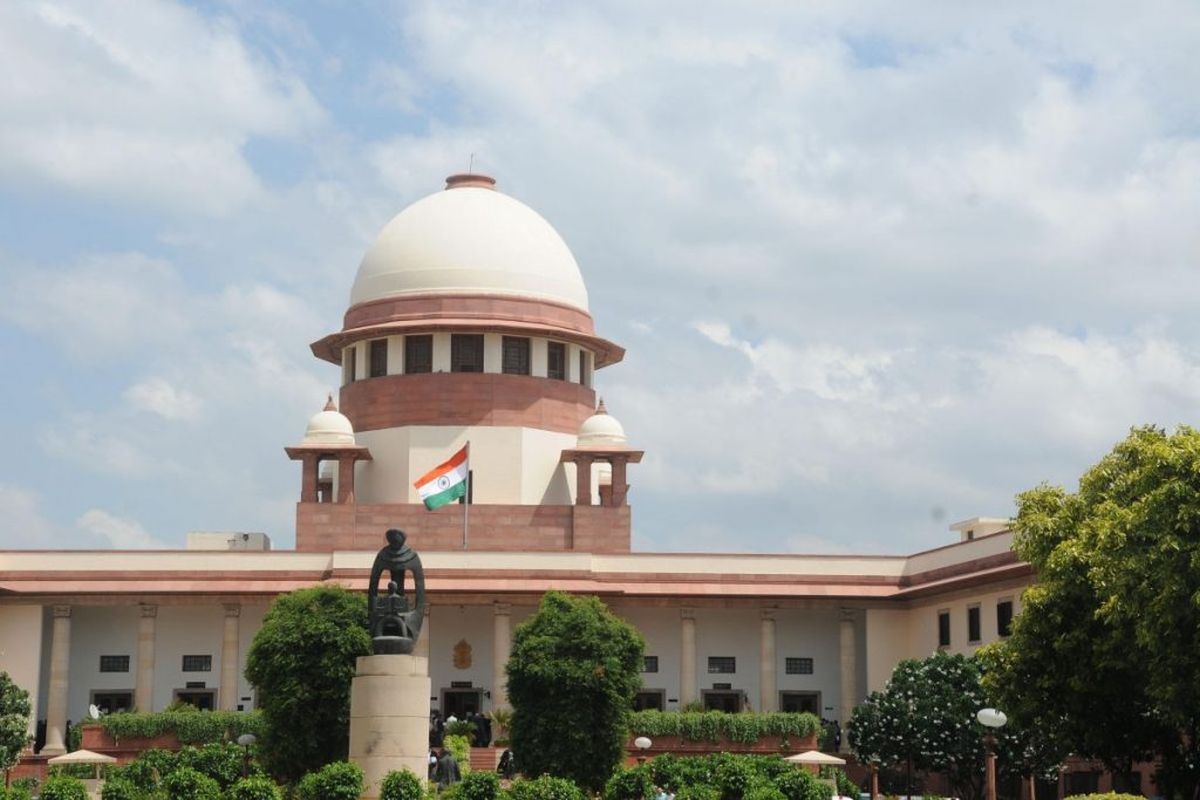EC defends integrity of EVMs in SC, asserts it can’t be manipulated
The Election Commission of India (ECI) defended the integrity of the electronic voting system, asserting that it was not prone to any external interference or manipulations.
The latest case in point is how the Chief Justice of India Sharad A Bobde disposed of DMK’s appeal against Tamil Nadu Assembly Speaker P Dhanapal’s failure to disqualify 11 AIADMK MLAs who disobeyed the party whip and voted against Chief Minister Edappadi K Palaniswamy in a motion of confidence on 18 February 2017, with the words, “Needless to mention the Speaker had to take a decision in accordance with the law,” without stipulating a period within which the Speaker should decide.

Supreme Court of India. (File Photo: IANS)
Of late there is a tendency in the Supreme Court to pronounce verdicts that are nonjudgmental. The latest case in point is how the Chief Justice of India Sharad A Bobde disposed of DMK’s appeal against Tamil Nadu Assembly Speaker P Dhanapal’s failure to disqualify 11 AIADMK MLAs who disobeyed the party whip and voted against Chief Minister Edappadi K Palaniswamy in a motion of confidence on 18 February 2017, with the words, “Needless to mention the Speaker had to take a decision in accordance with the law,” without stipulating a period within which the Speaker should decide.
And to give this order, the Supreme Court took nine months. The Speaker has not taken a decision in accordance with the law for the last three years and has no intention of taking one during the remaining nine-month period of the present Assembly as it would result in the fall of the AIADMK government. O Panneerselvam, who led the revolt against the government in the motion of confidence in the Chief Minister, is now the deputy chief minister and his close aide Ma Fo Pandyarajan a cabinet minister. The remaining nine rebel MLAs were suitably rewarded.
The Speaker refused to disqualify the 11 MLAs under the 10th Schedule of the Constitution. But he disqualified 18 ruling party MLAs for expressing lack of confidence in Palaniswamy. When the aggrieved MLAs approached the Madras High Court, then Chief Justice Indira Banerjee held that the court could not encroach on the Speaker’s powers. In the Union Territory of Puducherry, Lt Governor Kiran Bedi nominated three BJP workers to the Assembly whom the Speaker refused to swear in as members.
Advertisement
Bedi administered the three the oath of Assembly membership at Raj Nivas and approached the Madras High Court for their recognition. Justice Banerjee, who refused to intervene in Tamil Nadu Speaker’s inaction, was quick to rule against the Puducherry Speaker’s action regarding the three nominated members and legalised their membership on 22 March 2018. She has since been elevated to the Supreme Court. The Constitution (52nd Amendment) Act, 1985, was enacted to curb defections.
A political party goes before the electorate with a specific programme and fields candidates on certain promises. Such a person when elected cannot change his affiliation for extraneous consideration. The legislative intent of the anti-defection law stands defeated by the partisan stand taken by the Speaker and the judiciary’s reluctance to intervene. As long as the Speaker is elected from the ruling party, an element of bias will creep into his quasi-judicial actions.
In the United Kingdom, the Speaker of the House of Commons, once elected, gives up all links with his political party and remains in office until retirement. Some such arrangement could ensure the neutrality of the Speaker and safeguard the intent of the anti-defection law.
Advertisement